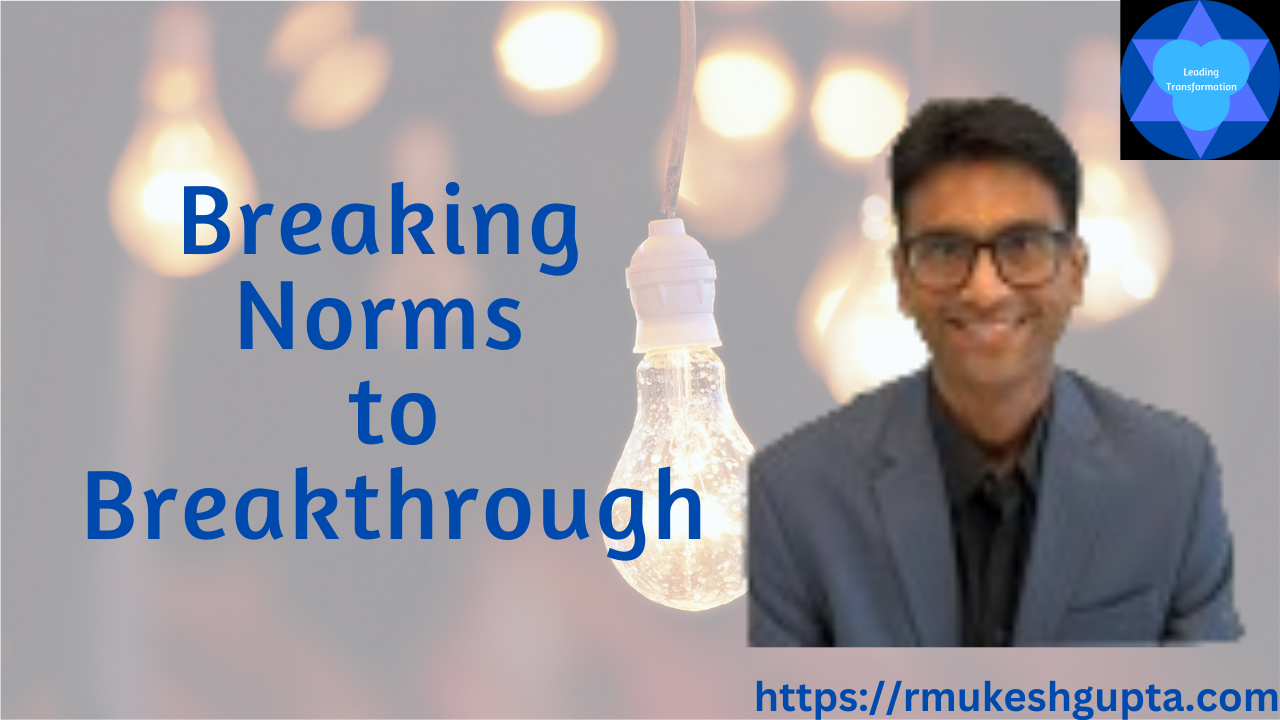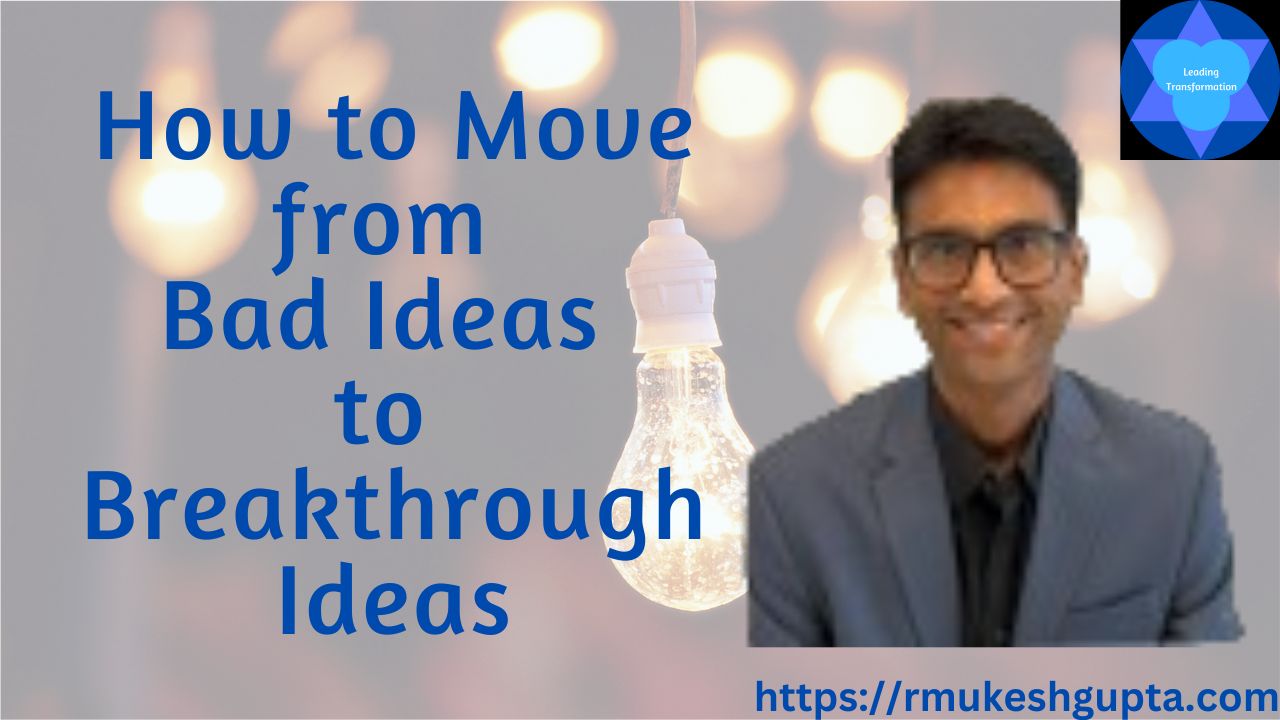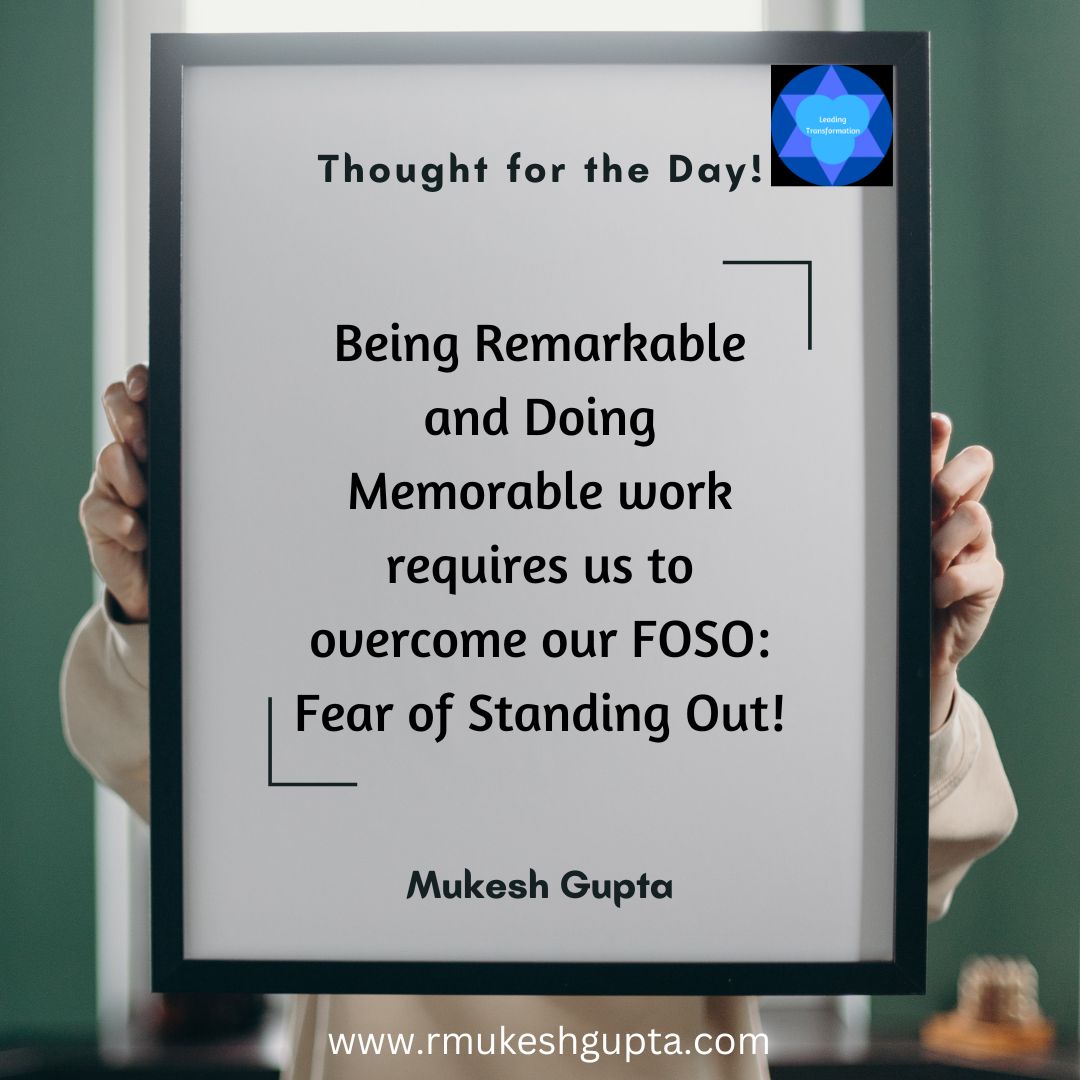
I just finished reading the book – Meaningful, by Bernadette Jiwa. In the book she talks about the importance of “Invisible Problems”and refers to a TED Talk delivered by Tony Fadell. I watched the talk and would recommend that all entrepreneurs should watch the talk, multiple times.Seth Godin introduces him selves as someone who notices things for a living.
If you look at some of the most successful entrepreneurs of this generation, you will notice that all of them started with a problem that all of us faced but did not see it as a potential for value creation:
- AirBnB saw that there were people who had a need and another set of people who could fulfil the need.
- FaceBook noticed our need to connect and stay in touch with our friends.
- Uber noticed the frustration we feel when we are waiting for a taxi.
- Shoes of Prey noticed the need for custom sized shoes.
- Sheroes noticed the special needs that women have from a career perspective.
- GoPro noticed the frustration of not having a camera that was suitable for outdoor, adventure activities.
- Etsy noticed the frustration of artists who wanted to set shop and sell their goods online.
- Kickstarter noticed the frustration of inventors and creators in getting funds for their projects.
The list goes on. The only thing that they did was to notice these as problems and set out to address them.
All innovation starts with noticing these invisible problems. Some call them insights.
Once you have noticed a problem that is invisible for most of us, you have an excellent starting point to create something that will resonate with us, without you having to convince us about its value.
These are the products or services that when we come across, makes us feel that they make perfect sense and make us think why no one thought of it earlier.
The question we need to ask is the following:
Is this a learned skill and if yes, how does one go about learning to notice things.
Tony already does share some suggestions on how can we go about learning this skill.
In my opinion, the single most important skill that can help us in this regard is our ability to stay curious.
- Every time we tell someone that is how it is, we need to stop and think about the situation again. There might be an invisible problem worth solving.
- Every time we find ourselves complaining about things, we need to stop and explore it a bit more.
- Every time we hear some one utter the words, “this is so frustrating”, we need to stop and explore.
- Every time we hear our child ask a question and don’t know the answer, we need to stop and explore.
It is much easier to push things downstream rather than push it upstream. Identifying and solving an invisible problem is like pushing a product or service downstream. Its easier, faster and gains momentum quickly, which is of course assuming that we have done a good job in identifying the problem well and the solution is easier, faster and simple to use.
There are other things that you can implement into the solution for spreading the idea faster.
However, the fact remains that if we get good at this, our ability to come up with great products/services increases multi-fold.
So, what invisible problem have you noticed recently?
You can watch the entire TED Talk by Tony Fadell below:




2 thoughts on “Invisible Problems”
Comments are closed.